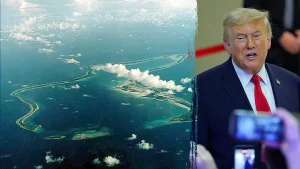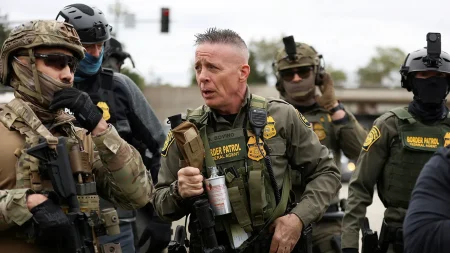Trump’s New Threats Against Mexican Cartels Spark International Tension
In a dramatic escalation of his hardline approach to border security and drug trafficking, President Donald Trump has recently ordered military action targeting Latin American drug cartels, particularly those operating in Mexico. This aggressive stance comes alongside threats of implementing new tariffs against Mexico, creating immediate diplomatic friction with the newly inaugurated Mexican President Claudia Sheinbaum, who has firmly pushed back against what she perceives as violations of Mexican sovereignty. The confrontation represents one of the first major foreign policy challenges for Sheinbaum’s administration and signals a potential return to the contentious relationship that characterized Trump’s previous term with Mexico.
Trump’s directive for military intervention against cartels marks a significant departure from traditional international cooperation frameworks in combating drug trafficking. While details of the planned operations remain classified, security experts suggest they could range from increased intelligence sharing to more controversial measures like drone strikes or special forces operations on Mexican soil. The President has justified these actions by citing the devastating impact of fentanyl and other drugs flowing across the southern border into American communities, calling the cartels “terrorists” who pose an existential threat to American lives. Critics, however, worry that unilateral military action could violate international law and worsen violence in regions already devastated by cartel warfare, potentially creating humanitarian crises and increasing migration pressures.
Accompanying the military threat, Trump’s proposed new tariffs against Mexico would potentially devastate an economic relationship that has grown increasingly integrated since the implementation of the USMCA trade agreement. The tariffs, which Trump suggested could start at 10% and increase until Mexico takes satisfactory action against drug trafficking and migration, would impact approximately $400 billion in annual trade between the two nations. American manufacturers, particularly in the automotive, agriculture, and technology sectors, have expressed alarm at how these measures could disrupt supply chains, increase consumer prices, and potentially trigger retaliatory tariffs from Mexico that would further harm U.S. exporters and workers in key swing states.
President Claudia Sheinbaum, Mexico’s first female president and a respected scientist and former mayor of Mexico City, has responded with measured but firm opposition to Trump’s threats. In public statements, Sheinbaum emphasized Mexico’s commitment to addressing drug trafficking through its own sovereign institutions while rejecting any foreign military presence on Mexican soil. “Mexico is not a colony or a protectorate,” she declared in a nationally televised address, “We will cooperate with the United States as partners, but never as subordinates.” Behind the scenes, her administration has reportedly engaged in intensive diplomatic efforts, reaching out to congressional leaders, business associations, and potential allies within the Trump administration who might advocate for a more moderate approach.
The escalating tension occurs against a complex backdrop of domestic politics in both countries. For Trump, the aggressive stance appeals to his base voters concerned about immigration and drug trafficking, particularly in battleground states where the opioid crisis has hit hardest. The timing also diverts attention from his ongoing legal challenges while reinforcing his strongman image. For Sheinbaum, the confrontation presents both risks and opportunities as she seeks to establish herself as a defender of Mexican sovereignty while not completely alienating her country’s largest trading partner. Her response has garnered widespread support across Mexico’s political spectrum, temporarily uniting a politically divided nation as citizens rally behind their president’s defense of national dignity.
International observers and security experts worry that this confrontational approach could undermine years of bilateral cooperation on security matters while doing little to address the root causes of drug trafficking and migration. Effective approaches to these transnational challenges typically require sophisticated coordination on intelligence sharing, legal cooperation, economic development in source regions, and addressing demand for drugs within the United States itself. As the situation develops, much will depend on whether cooler heads prevail in both administrations, allowing for a return to collaborative approaches that respect both countries’ interests and sovereignty while acknowledging their shared responsibility in addressing the complex challenges that bind their futures together.










